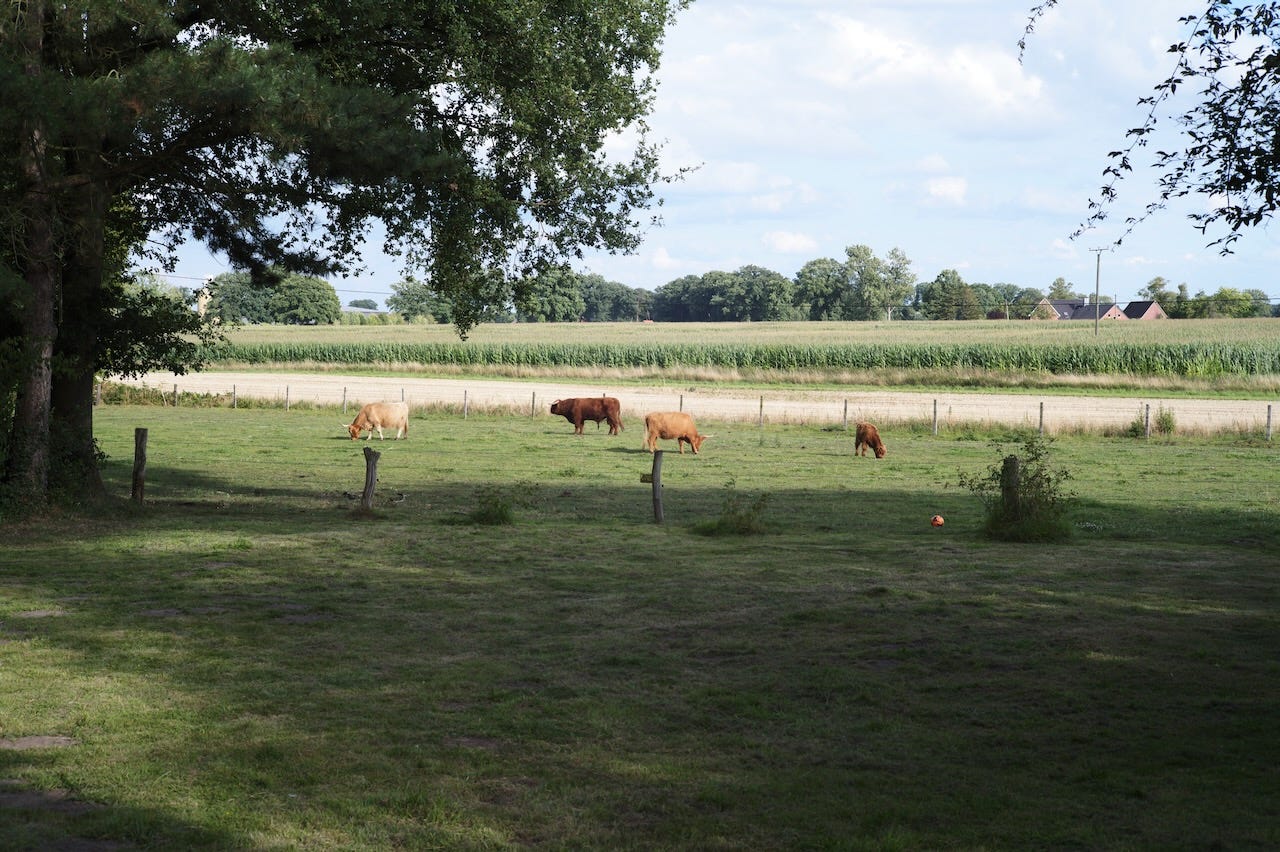Week 33: Offsite & Observations from the Farmhouse
The paradox of distributed work, real-world signals from the venture frontier, and why presence still matters.
Last week, our HEARTFELT_ team gathered at a farm in western Germany for our annual offsite. This is a rare moment when our distributed team comes together to tackle the questions that require deep, collective thinking.
The Paradox of Distributed Work
Most days, our work is highly distributed and transactional. We spend a lot of our time working with founders. These biannual offsites allow us to recharge our social connections and dive into complex topics that benefit from face-to-face discussion.
We also usually do at least one “workstorm” where we work on one thing and see the results.
This summer's workstorm focused on updating one of our core databases. This task could be done remotely, but it takes on a different energy when you can just yell across the house instead of sending a Slack message. The immediacy of in-person collaboration creates a flow that's hard to replicate virtually.
This balance between distributed and concentrated work isn't just about preference. It's about finding the right tool for each job. While async work gives us freedom and reach, these intense periods of co-location help us tackle complex problems and strengthen team bonds. The challenge is finding the optimal point that serves both company goals and individual working styles.
Ironically, after months of video calls, the richness of in-person interaction usually overwhelms me. Reading real-world body language and non-verbal cues demands a different kind of attention than parsing faces on Google Meet calls.
How Venture Decision-Making is Changing
The most crucial discussion centered on how our follow-on investment criteria are evolving. While some traditional indicators remain vital - business traction, team capability, and co-investor quality - the acceleration of build-measure-learn cycles is prompting us to rethink others.
What's changed dramatically is the speed at which teams can move from idea to data. Tasks that took months now take weeks, and costs that used to require hundreds of thousands can be handled with minimal investment. This shift isn't just about efficiency - it's fundamentally changing what we look for in teams and how we assess progress.
The technical barriers to entry have collapsed. Modern tech stacks and services have democratized product development to the point where small teams can ship and iterate faster than established companies could two years ago.
This democratization raises fascinating questions about moats and team composition. When technical complexity isn't the barrier, what creates lasting advantage? We're seeing successful teams that look different from the traditional technical founder archetype.
The rise of AI and agentic technologies has accelerated this trend. Individuals can now build features that would have required entire teams by leveraging these tools. But this creates a new tension:
How much independence are founders willing to trade for speed? Where does your competitive advantage truly lie when your product is built on third-party AI models and integrated services? These questions are reshaping how we think about sustainable business models and follow-on investment criteria.
A Market That Remains Dynamic
Even as we carved out time for deep strategic thinking, the market kept moving at full speed. Unlike previous summers, we're not seeing the typical seasonal slowdown.
The signals are clear: new founders are actively seeking first checks, and our portfolio companies are engaging with VCs across Europe. This persistent momentum, even during traditional slow periods, suggests something fundamental is changing in the European startup ecosystem.
Personal Explorations
I carved out time to explore tools that might help us navigate this accelerating landscape, even during our intense collaborative sessions. I'm particularly focused on how knowledge graphs might enhance our AI-driven decision-making workflows. My experiments with Neo4j are still early, but I'm curious about how structured knowledge representation could help us track and predict startup evolution more effectively.
Some content that resonated with these themes:
Anthropic on Prompting 101
As AI becomes central to startup tooling, understanding prompt engineering isn't just technical. It's becoming a core business competency. This is a useful video on how you can prompt well.
Challenges of chunking
Chunking is critical for understanding how to effectively process the increasing volume of startup data we're seeing.
The Blaze in Mexico
Sometimes you need to step back from the fast pace and just appreciate pure creative energy.
Alan Shaller on portrait photography
I took some team photos at the farm. I enjoy learning from the best. :-)
Gpoteliunaite97's newsletter:
My former colleague's view on liquid modernity and its challenges. Weird name, good thoughts.
Thank you for reading, have a great week and connect soon!
Best,
Joerg
PS: These are my thoughts written by me with some AI editing support.


